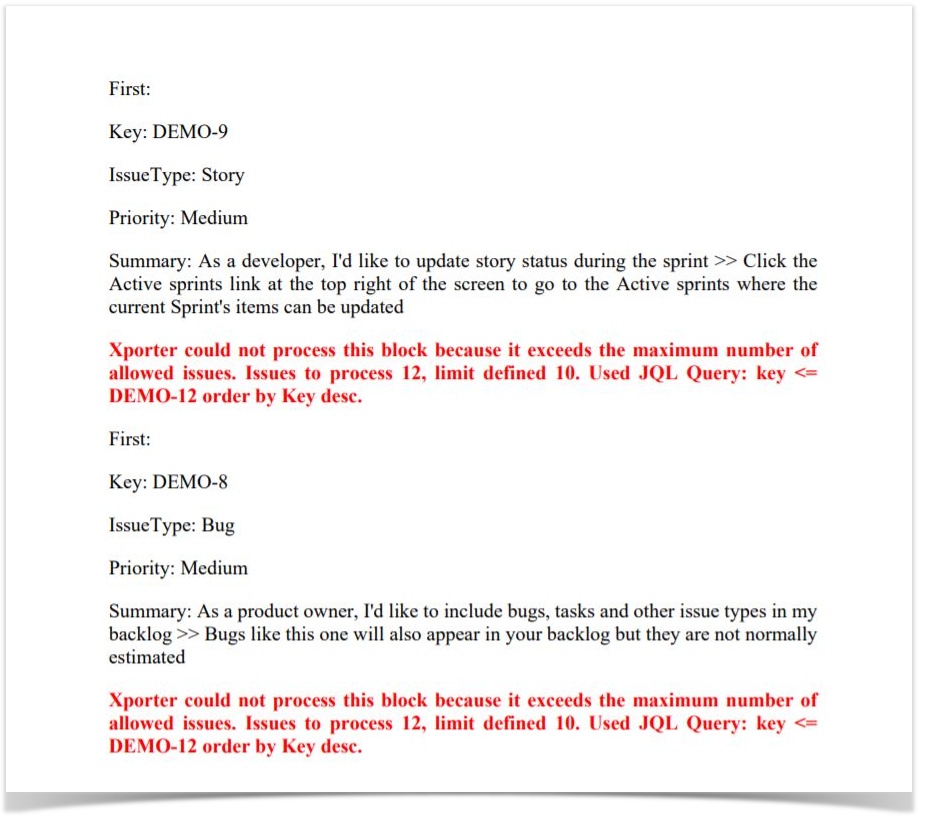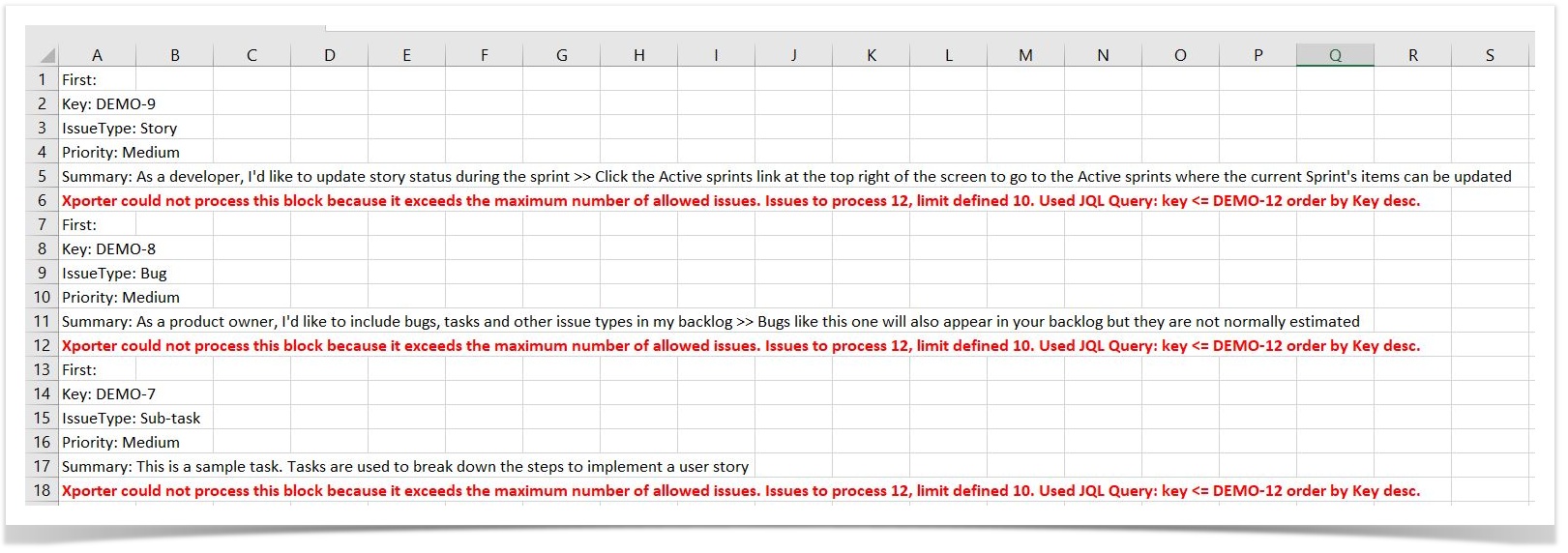| Table of Contents |
|---|
Inserting the number of issues returned by a JQL Query
Xporter for Jira allows you to insert in the document the number of issues returned by the execution of a JQL query.
Definition:
${jqlcount:<JQL Query>} |
| Code Block | ||||
|---|---|---|---|---|
| ||||
${jqlcount:Project = DEMO} |
The example above will put the number of issues of the project DEMO in the document.
FilterJQL & FilterName
| Info |
|---|
This only works when the export is made via the Export menu on the Issue Navigator screen. |
Xporter for Jira also allows you to render the FilterJQL and the FilterName used to search Issues on the Issue Navigator screen.
Definition:
|
Filter
You can now work with the filters you have defined on your Jira instance.
If you want to get the JQL statement, simply map:
|
Furthermore, if you want to export the jqlCount, you don't need to put the entire JQL Query, you just need use the filter name or the filter ID to see all the entries you have on this filter:
|
Last but not least, you can iterate issues with the JQL associated to a filter within the clause parameter by passing only the filter name or filter ID:
| Code Block | ||||
|---|---|---|---|---|
| ||||
A simple example iterating the details of issues from a filter already defined on your Jira
#{for i=JQLIssuesCount|clause=${filter:<Filter Name> or <FilterId>}}
${JQLIssues[i].Key}
${JQLIssues[i].Summary}
#{end}
|
JQL limit of issues
Once the user defines a maximum number of issues on Global Settings, JQL issues processing will replace the iteration that exceeds that limit with a warning message.
The maximum number of issues is 10:
The first filter returns fewer issues than the defined limit and the second returns more than 10 issues:

